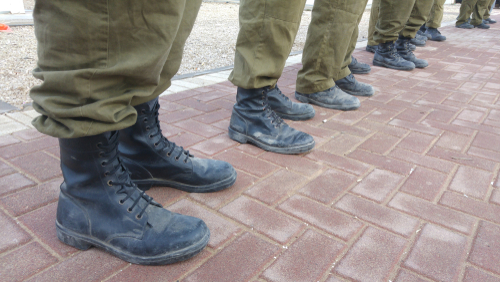Male-only draft violates equal protection principles, federal judge rules

Photo by Roman Yanushevsky/Shutterstock.com.
A federal judge in Houston has ruled that the male-only draft violates equal protection principles of the Fifth Amendment’s due process clause.
U.S. District Judge Gray Miller ruled Friday in a suit by the National Coalition for Men, report USA Today, the San Diego Union-Tribune, the New York Times and NPR. Miller granted the group’s motion for summary judgment but did not grant an injunction because the issue had not been briefed.
The U.S. Military currently relies on volunteers. But the Military Selective Service Act still requires men between ages 18 and 26 to register for the draft. Men who fail to register can be fined up to $10,000 and imprisoned for up to five years.
Miller noted that the U.S. Supreme Court had upheld the draft-registration law in 1981 in Rostker v. Goldberg. But women weren’t eligible for combat at the time, and the purpose of draft registration was to prepare for a draft of combat troops.
Circumstances have changed since that ruling, Miller said. In 2013, the U.S. Department of Defense lifted the ban on women in combat, and in 2015, the department lifted all gender-based restrictions on military service.
The government had argued that the decision to exclude women was justified by the administrative burdens of registering them. But the government did not present any evidence that Congress considered whether a female draft was unjustified because fewer women than men will be able to meet the physical standards of combat, Miller said.
“Had Congress compared male and female rates of physical eligibility, for example, and concluded that it was not administratively wise to draft women, the court may have been bound to defer to Congress’ judgment,” Miller wrote. “Instead, at most, it appears that Congress obliquely relied on assumptions and overly broad stereotypes about women and their ability to fulfill combat roles.”
In a footnote, Miller said that combat roles “no longer uniformly require sheer size or muscle.” Women “could conceivably be better suited physically for some of today’s combat positions than the average man, depending on which skills the position required,” he said.
The Selective Service System had argued that a ruling on the case should be postponed under separation of powers principles because Congress is currently considering whether to add women to the draft. The government had argued that the congressional debate also meant the case is not yet ripe for review.
The government noted that a national commission was considering congressional recommendations.
But there is no guarantee that Congress will act, Miller said. Congress has been debating the male-only draft since at least 1980 and recently rejected a proposal to include women, he wrote. And national security concerns don’t justify a refusal to act by the courts, he said.
Write a letter to the editor, share a story tip or update, or report an error.


